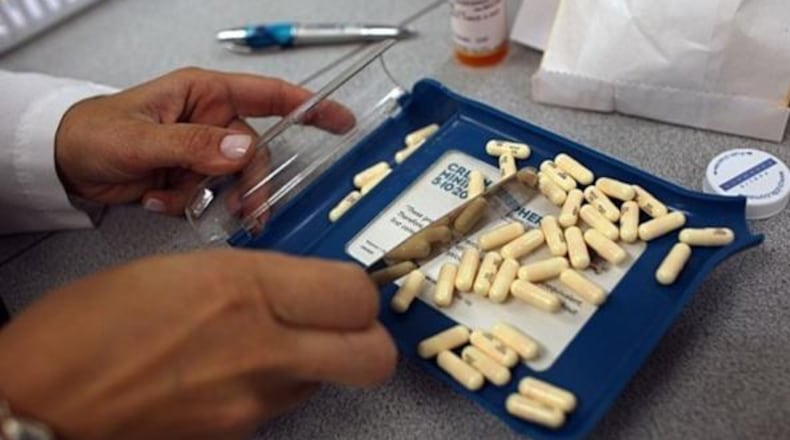As scientists grow increasingly concerned about the long-term effects of antibiotics, a new scientific study suggests these medications could affect a woman's future children.
Antibiotics are readily used to treat a wide range of illnesses, but scientists have noted that some strains of bacteria are increasingly resistant to their effects. This has raised concerns of the development of more super bugs that may be untreatable with current medications.
That's why a new study — published in "Nature Biology" — is raising even more alarm bells about antibiotics.
The research suggests that mothers exposed to antibiotics may pass on the drugs' negative effects to their children.
Scientists already believed that antibiotics may be interfering with the microbiome, which is a community of bacteria that live in the gut and elsewhere in the body. It’s believed that these changes caused by interference could be passed on to offspring.
To examine this more closely, researchers at the New York University School of Medicine experimented with a group of female mice.
The rodents were divided into two groups, one that had a normal microbiome and the other that was previously treated with antibiotics.
When the female mice gave birth to pups, scientists discovered that those treated with antibiotics had passed on their changed microbiome to their babies.
"Our results provide strong evidence that antibiotics change the baby's inherited microbial communities with long-term disease consequences, which is especially important given the widespread use of antibiotics in young women before and during pregnancy," Martin Blaser, the Muriel G. and George W. Singer Professor of Translational Medicine at NYU Langone Health (and the study's senior author), told Medical Xpress.
The researchers also studied a group of mice that was engineered to be at higher risk for colitis, a type of inflammatory bowel disease (IBD). According to previous research, IBD — which effects some 1.3 million Americans — may develop more readily in individuals who have been exposed to antibiotics.
For this second part of the study, half the female mice again had a normal microbiome while the other half had one exposed to antibiotics.
Five months after the mothers gave birth, scientists found that the pups from the mothers who had an altered microbiome had significantly worse colitis than their counterparts.
"Our study shows that the changes made to the microbiome by antibiotic exposure can be transmitted across generations, from moms to their offspring, which is consistent with our work and that of others in humans," Blaser said.
Researchers warned that antibiotic exposure appears to have "ecological and long-term disease consequences."
But Blaser told TIME that he's not suggesting cutting out all antibiotics, but "we have to use them much more wisely."
"A lot of pregnant women are taking antibiotics, and a lot of teen girls are taking antibiotics," he said. "We are concerned that it could have an effect on the next generation."
Read the full study at Nature.com.
About the Author
Keep Reading
The Latest
Featured


